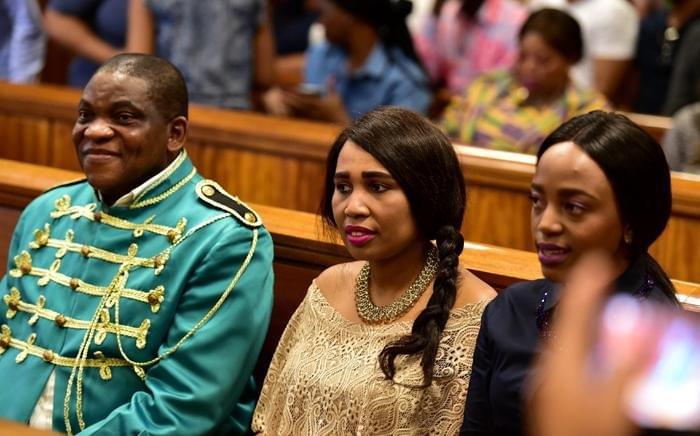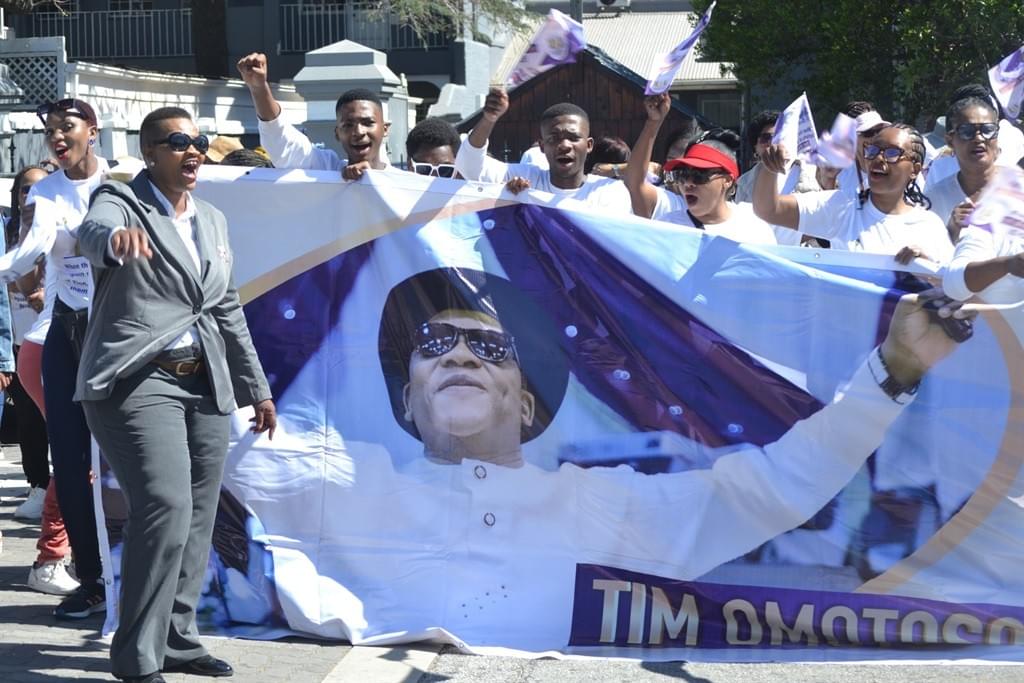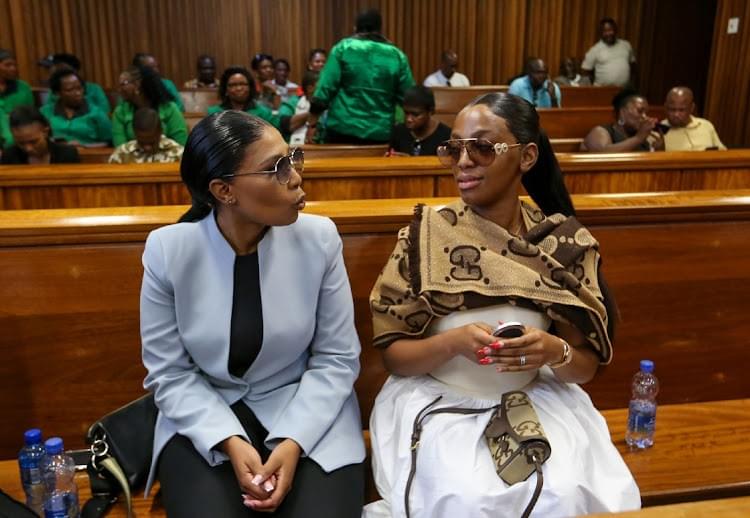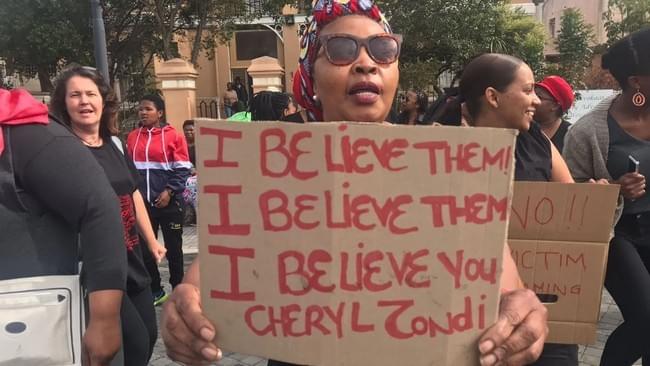
The trial of Pastor Tim Omotoso is one of the most shocking and deeply painful examples of gender-based violence (GBV) wrapped in a facade of faith.
For years, the charismatic pastor used his church, the Jesus Dominion International, not as a sanctuary for healing but as a haven for predatory behavior. He weaponized the Bible, misused the name of God, and manipulated vulnerable women and girls into silence as he committed horrific acts of sexual abuse.
The case, which began in 2017, has dragged on for years, riddled with delays and legal maneuvering. It has become a painful symbol of justice delayed, a stark reminder of the pervasive scourge of GBV in South Africa, and the uphill battle survivors face when they seek accountability.
At the heart of this story are the brave victims who came forward to testify. Their testimonies revealed a nightmare concealed behind the polished image of a pastor. Omotoso's alleged victims—many of whom were minors when the abuse began—described how they were groomed, manipulated, and ultimately violated under the guise of spiritual mentorship.
Their stories were harrowing: being forced to live in his Durban mission house, cut off from their families, and subjected to ongoing sexual abuse.
Despite their courage, these victims have faced relentless backlash. In a deeply disturbing show of societal complicity, crowds of women—many of them mothers—gathered outside the court to defend Omotoso. They held signs proclaiming his innocence, prayed loudly for his deliverance, and hurled insults at the victims who dared to speak out.

The chilling sight of women defending a man accused of raping girls as young as 14 underscores the deep roots of victim-blaming in our society.
Adding to the victims’ ordeal was the conduct of Omotoso’s defense team, particularly his lead counsel, Peter Daubermann. His cross-examinations were a masterclass in secondary victimization. Survivors were subjected to invasive, degrading questions, with their credibility constantly under attack.
Daubermann’s tone was often dismissive, his questions designed to humiliate rather than uncover the truth. This aggressive style left many survivors retraumatized, and it sparked national outrage about the treatment of victims in the justice system.
One of the most prominent victims, Cheryl Zondi, testified about the abuse she endured at the hands of Omotoso when she was just 14 years old. Her testimony was gut-wrenching, and her composure in the face of brutal cross-examination inspired a nation.
But Cheryl’s courage came at a cost. She faced relentless backlash on social media, with some accusing her of lying and others claiming she had somehow "invited" the abuse. Such reactions reflect a dangerous culture of victim-blaming that deters countless survivors from coming forward.
Omotoso’s co-accused, Lusanda Sulani and Zukiswa Sitho, were women who allegedly played key roles in recruiting young girls for the pastor. Their involvement highlights another heartbreaking dimension of GBV: how patriarchal systems often coerce women into becoming enablers of abuse.

These women, like many others trapped in toxic systems, were likely groomed and manipulated themselves. Their actions, while inexcusable, are a painful reminder of how abusers exploit power to corrupt others.
The delays in the Omotoso trial have been infuriating. From jurisdictional disputes to arguments over the admissibility of evidence, the legal system has allowed this case to drag on for more than six years. Meanwhile, survivors are left in limbo, their healing postponed by the slow grind of justice.
This is not just a failure of the courts; it is a failure of society to prioritize the voices of the most vulnerable. Justice delayed is justice denied, and the drawn-out nature of this case underscores the urgent need for reforms in how GBV cases are handled.
South Africa’s GBV crisis is a national emergency. Every year, thousands of women and girls are raped, murdered, and abused. Yet, when they speak out, they are met with disbelief, ridicule, or worse. The backlash faced by survivors in the Omotoso case is emblematic of a broader societal problem.
Instead of holding perpetrators accountable, too many people rush to defend them, citing their status, charisma, or contributions to the community.
So, how do we combat this culture of backlash and victim-blaming? It starts with education. From a young age, boys and girls must be taught about consent, respect, and equality. Faith communities, too, must play a role.

Religious leaders must condemn abuse unequivocally and hold their peers accountable, ensuring that places of worship are safe havens, not hunting grounds.
The justice system must also do better. Survivors should never have to endure the kind of secondary victimization seen in the Omotoso trial. This requires specialized training for judges, lawyers, and law enforcement on how to handle GBV cases with sensitivity and care. It also means providing survivors with robust support systems, from counseling to legal aid.
Finally, as a society, we must believe survivors. We must amplify their voices, challenge victim-blaming narratives, and hold abusers accountable—no matter their status or power. The bravery of Cheryl Zondi and other survivors in the Omotoso case should inspire us all to do better.
The trial of Pastor Tim Omotoso is more than a legal battle; it is a test of our collective humanity. Will we stand with survivors, or will we allow abusers to hide behind power, status, and faith? The answer to that question will shape the future of our fight against GBV.
To every survivor who has spoken out against abuse, your courage lights the way for others. You are not alone.
We see you, we hear you, we believe you and we will continue to fight for a world where no one has to endure what you have experienced

